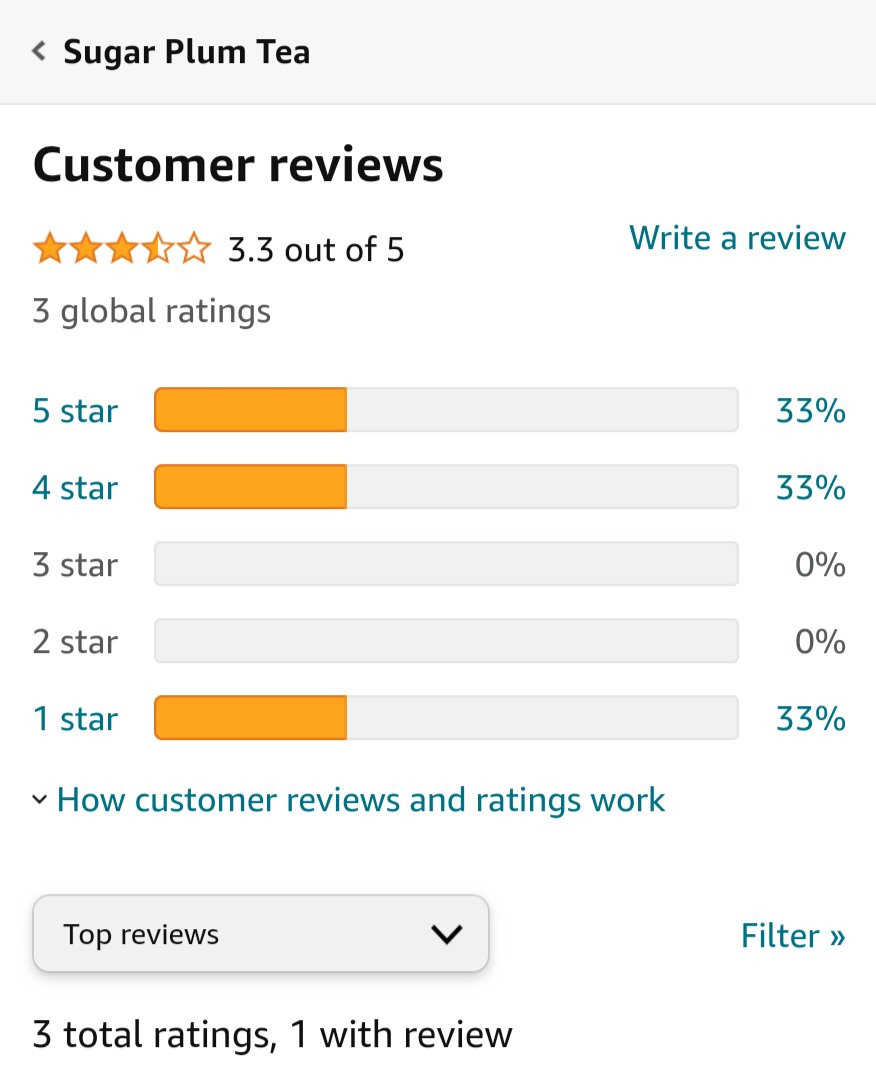How to make Amazon better?
For authors, and probably everyone else.
Big thanks to my pal Sinnamon Carnelian for letting me use her book as the case study here.
A few years ago I was talking to a Creative Writing teacher and we got onto the subject of Amazon ratings. He largely discounted Amazon ratings (and by proxy Goodreads reviews) as a measure of whether or not a book was ‘good’. Rather, he picked books that won awards handed out by throbbing multinational coffee shops instead. Newspapers paid to review books also held higher authority than discerning fans of the genre who were reviewing the books for free.
I wasn’t sure how I felt about this placement of value. Not least because increasingly I find reviews written by big name coffee shops and newspapers all sound the same after a while, as if they were rushed or have a list of buzzwords to include.
I wondered, who holds the value when it comes to rating books?
Arguably, readers on Amazon. It’s where a lot of people (especially in self-publishing) get started, get noticed. The review system is improving over time, but it still has its flaws. Mainly, that you see a rating before you scroll down to the reviews, and that those ratings are easily skewed.
What follows is an old rating for Sugar Plum Tea, by Sinnamon Carnelian.
(This is an early rating, used for demonstration purposes)
You will notice that the average rating at one point, was 3.3 out of 5.
In this screenshot, the majority of reviews for this book are 4 and 5 stars. Granted, there were only three reviews at the time I took this screenshot, not long after launch, and it has since climbed up to an average rating of 4 stars, but you can see already an issue with ratings. Just one 1 star rating dragged the other two ratings down, resulting in an average of 3.3 stars.
This is just how these statistics work. In academia I came across the same thing. In third year I willfully abandoned my scriptwriting class to hyper-focus on designing a video game. The video game did well and dragged up the other grade towards a decent average.
This works in academia because you can think, “Okay, if I specialise in this and put less time into that, then I will be happier overall as I work on what I want to do once I graduate, and my grade will still be decent”
(disclaimer, this was not a popular approach, but I took it anyway)
But this does not work for book ratings. All of the reviews for Sugar Plum Tea have been overwhelmingly positive. Just look at this one.
★★★★★
“I could not stop reading this amazing sci-fi romance with a side of drama. The author knocked this one out of the park with heartfelt characters, real-world (and off-world) situations, the drama of planetary war and aliens coming together with humanity to fight the invaders. A charming tale of found-family, a look into prejudice, and a budding romance are only a few of the things to look forward to in this amazing piece”
This is what readers think of Sugar Plum Tea.
The one 1 star rating didn’t have a review attached to it, which is often the case with the lower ratings. All the positive ratings usually come with reviews, so my point is that the average rating of a book on Amazon is misleading when you compare it to the real outpouring of support in the review section.
So, the average rating does not in any way indicate how much real people actually enjoyed the book. The reviews are better at that. Not perfect, but better. So why are they at the bottom?
My idea to improve Amazon, for authors and readers, is to put the best review up at the top. To allow authors (or publishers) to cherry pick a review and place it at the top. Otherwise reviews get lost. I’ve taken to cutting excerpts from reviews for my books and including them in the metadata, the synopsis of the book you read when you view it on Amazon. It’s become a digital back cover, but I wish there was an easier, and flashier, way to show off your favourite review.
And that’s another issue as a self-published author. Reviews are what humans care about. If you really want to sell a book, it’s hard to do it yourself. It’s much easier to get a stranger to tell another stranger how much they love it. I noticed this at ComicCon. When I brought up a review, people were much more interested than when I rambled endlessly about time travel.
So if you’ve read a book recently, any book, and you loved it. Please tell our robot overlords. It helps writers like myself and Sinnamon Carnelian get noticed.
Sugar Plum Tea is currently a contestant on the
‘Self-Published Science Fiction Contest’
which you can find with this hashtag
or this twitter link



